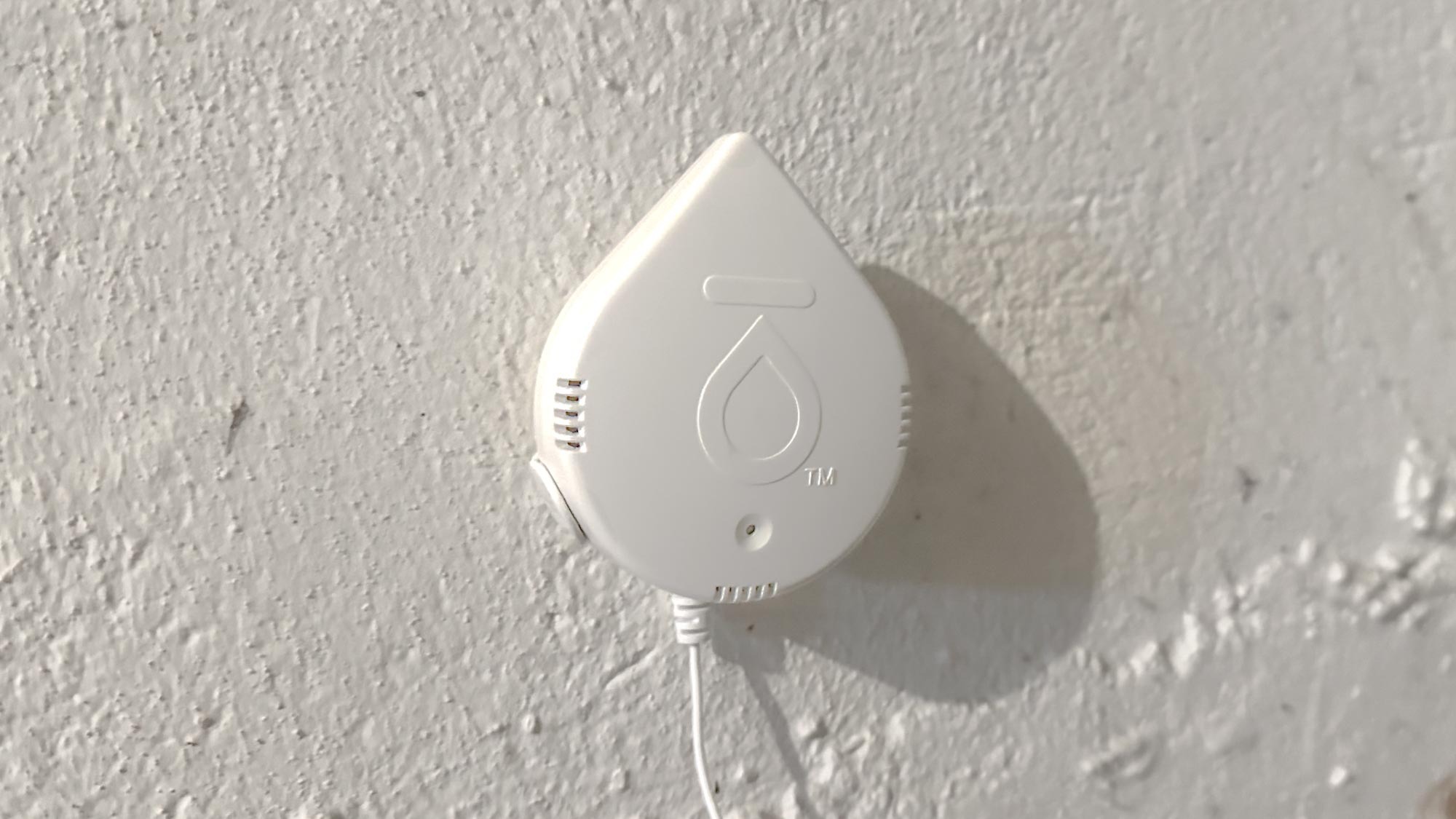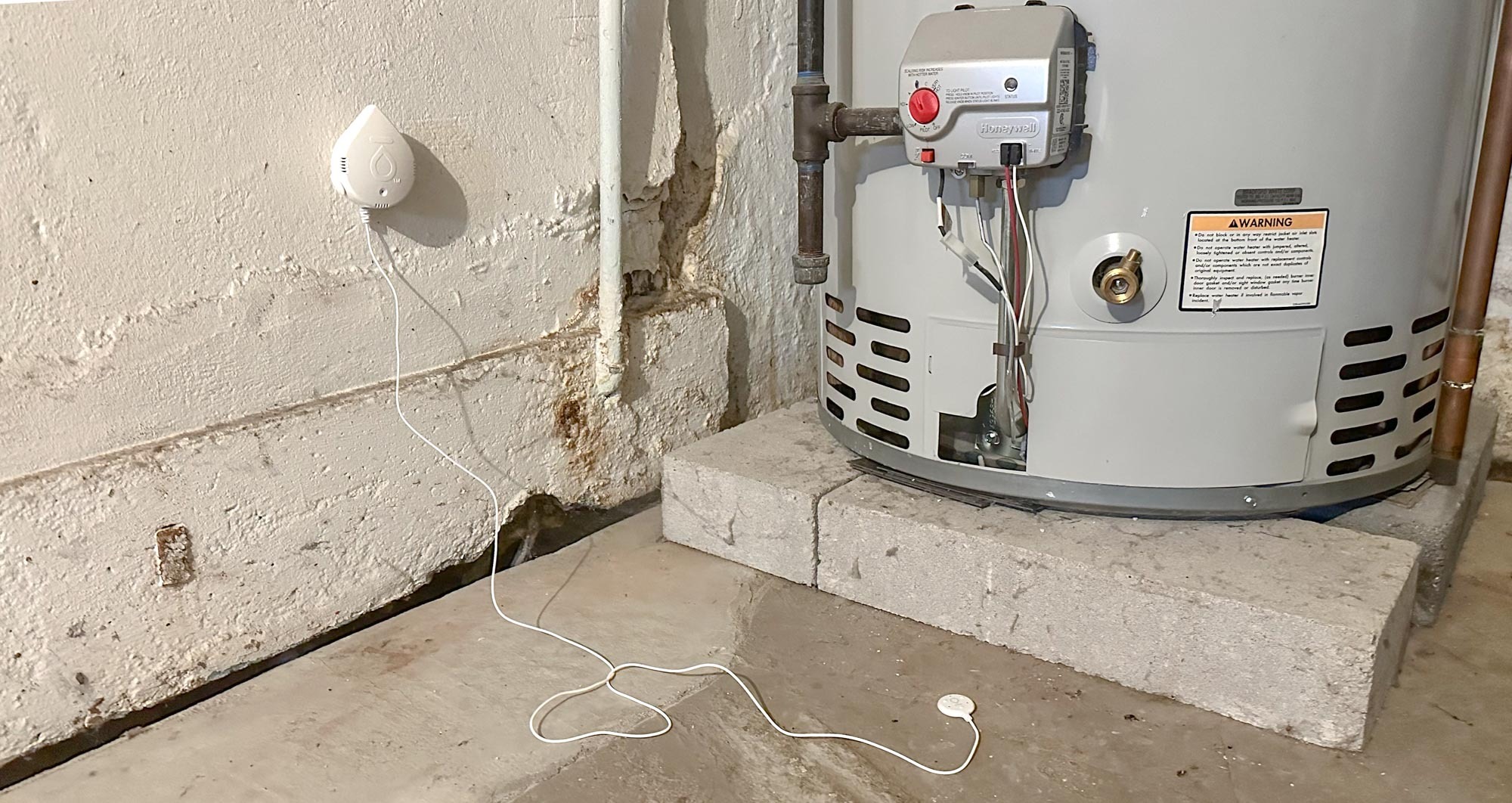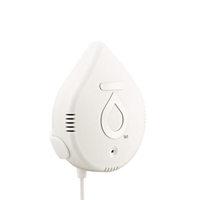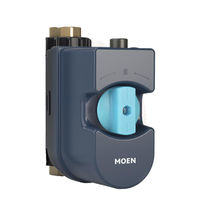Going on vacation this summer? This is the one smart home device you need to get — and it's less than $50
Don't come home to a disaster.

As you plan to head out on your summer vacation, I'm sure you have a checklist of things to take care of before you leave: make sure the post office holds your mail; change your thermostat settings; and make sure there's someone to look after your pets.
Some of the best smart home devices can further help you — a smart thermostat can let you control the temperature remotely, and a home security camera can let you keep tabs on your home, indoors and out. But there's one device that could save you a huge headache — and a huge bill — and you can get it for less than $50.
Moen Smart Water Leak Detector: was $49 now $32 @ Amazon
The Moen Smart Water Leak Detector can detect leaks and monitors for temperature and humidity. When it senses water, it sends an alert to your smartphone and emits a 51-dB siren. The Moen comes with a 4-foot remote sensor, and can be connected to Alexa and Google Assistant. The included CR123A battery should last for up to two years.
No matter where you are, a smart water leak detector can let you know if you have a burst pipe or water heater, or your basement has started flooding because of a huge rainstorm. These devices, which you connect to your home Wi-Fi, have metal contacts on the bottom, and when water touches both of them, it completes a circuit, and then sends you an alert to your smartphone.
While winter is a distant memory at the moment, the best smart water leak detectors can also monitor humidity and temperature, which makes them great for placing near pipes in unheated crawl spaces. So, if it gets near or below freezing, it can send you an alert so you can take preventative measures to prevent your pipes from bursting.

Most smart water leak detectors are fairly inexpensive, and cost around $30-$50 each. Some also come with sensor wires, so if your basement floods, it won't destroy the water leak detector in the process.
The only real disadvantage to this type of smart water leak detector is that, while it can alert you to a problem, it can't do anything about it.
However, a second type of water leak detector can help alleviate potential damage. It just costs more upfront.
Sign up to get the BEST of Tom's Guide direct to your inbox.
Get instant access to breaking news, the hottest reviews, great deals and helpful tips.
Shutting off the water at the source
Flo Smart Water Monitor and Automatic Shutoff Sensor: was $499 now $410 @ Amazon
This sensor will shut your water off when it senses a major leak. It's installed on your main water line, and comes in versions that accommodate 3/4", 1-inch, and 1.25-inch water lines.
While not as common, several companies make smart water detectors with shutoff valves, so in the event of a water leak, it can automatically turn off the water coming into your house. It can't do anything about the water already in your pipes, but it can prevent more water from coming in, so that you don't have thousands of gallons of water pouring into your home while you're out of town.
These types of smart water detectors work by analyzing the flow rate of water through your pipes, so in addition to major leaks, they can also identify other places in your home where you might be wasting water — maybe there's a small drip from a faucet you weren't aware of, for instance.
Not surprisingly, these water leak detectors cost a lot more. Typically, they'll run about $400-$500, and then you'll also need to hire a plumber to install it on the main water line in your house. But, what you spend upfront you could make up in savings, not just in the event of a disaster, but also through insurance premiums; many insurance companies will offer you a credit for installing one in your home.
Regardless of the type you choose, a smart water leak detector could at the very least give you added peace of mind while you're on vacation this summer.
More from Tom's Guide

Michael A. Prospero is the U.S. Editor-in-Chief for Tom’s Guide. He oversees all evergreen content and oversees the Homes, Smart Home, and Fitness/Wearables categories for the site. In his spare time, he also tests out the latest drones, electric scooters, and smart home gadgets, such as video doorbells. Before his tenure at Tom's Guide, he was the Reviews Editor for Laptop Magazine, a reporter at Fast Company, the Times of Trenton, and, many eons back, an intern at George magazine. He received his undergraduate degree from Boston College, where he worked on the campus newspaper The Heights, and then attended the Columbia University school of Journalism. When he’s not testing out the latest running watch, electric scooter, or skiing or training for a marathon, he’s probably using the latest sous vide machine, smoker, or pizza oven, to the delight — or chagrin — of his family.
-
sborman This article may tend to give a misimpression. The device shown, a Flo by Moen Smart Water Sensor, is not a device that "can't do anything about" a leak besides warn you about it. Although the sensor probably can be used in a standalone way to give a leak warning -- I've never tried to use it that way so I'm not familiar with that functionality -- it's part of the Flo by Moen leak detector and water shutoff system. The shutoff valve is not a more expensive leak detector. It uses the same types of Flo by Moen Smart Water Sensors shown in the article's photos to activate the shutoff valve to turn off the home's water when a leak is detected. The sensors don't cost more than normal when used as part of the complete system. The automated shutoff valve does cost more -- several hundred dollars -- and will be professionally installed in most cases, as the article indicates. After having a near-disastrous flood after a plastic toilet fitting broke, I purchased the Flo by Moen system -- 16 Smart Water Sensors and the shutoff valve. I had a plumber install the shutoff valve. The system works well, and I feel much safer having it in place.Reply


